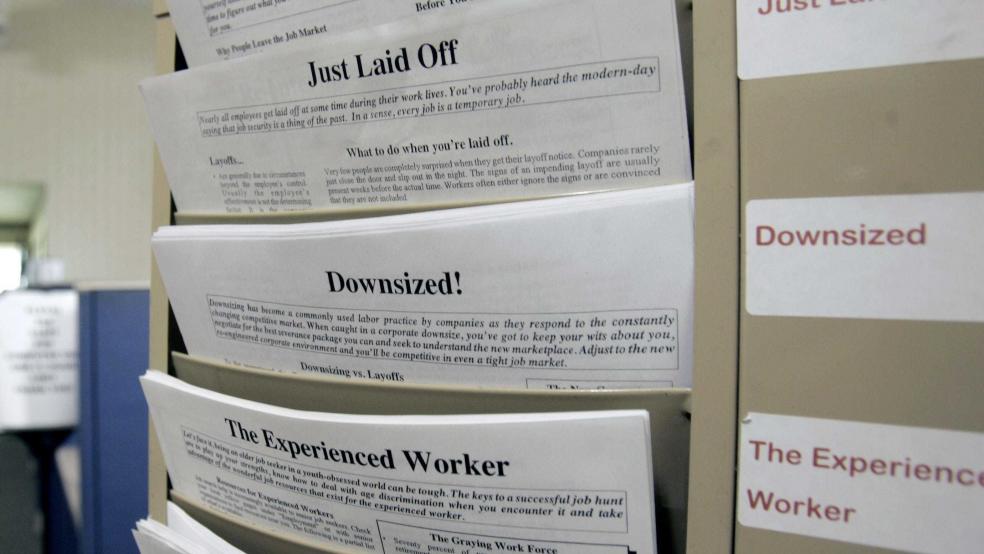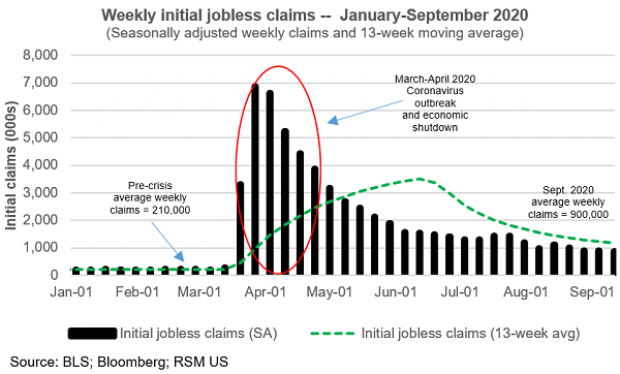About 860,000 people filed initial jobless claims last week, the Labor Department said Thursday, and another 659,000 people filed for benefits through the Pandemic Unemployment Assistance program, which aids self-employed and gig workers.
The state results were slightly better than expected and the federal program total showed considerable improvement compared to last week, dropping by more than 200,000, but the numbers remain extraordinarily high by historic standards, even as they slowly improve. As former White House economist Aaron Sojourner wrote in a tweet: “This makes 26 consecutive weeks (a half year!) with every week's number of new state UI [unemployment insurance] claims higher than any of the prior 2,776 weeks on record back to 1967.”
Joseph Brusuelas, chief economist at the consulting firm RSM, explained why the claims data continue to be so troubling: “The pace of firings in the U.S. economy remains well above anything observed during the Great Financial Crisis,” he wrote in a commentary, adding that the numbers are “a reflection of the deep scarring in the domestic labor market and economy.” (See his chart below.)
Gus Faucher, chief economist at PNC Financial Services, said the economy could take a long time to recover completely. “The labor market continues to heal from the viral recession, but unemployment remains extremely elevated and will remain a problem for at least a couple of years,” he said. “Initial claims have been roughly flat since early August, suggesting that the pace of improvement in layoffs is slowing.”
The stalemate in Washington over a new coronavirus stimulus package doesn’t bode well for the labor market in the coming months, according to Michael Gapen, chief U.S. economist at Barclays. “[I]f we’re not getting any additional benefits for households and replacement of lost wage and salary income, it does look like the pace of improvement is certainly going to slow,” Gapen told Bloomberg.




